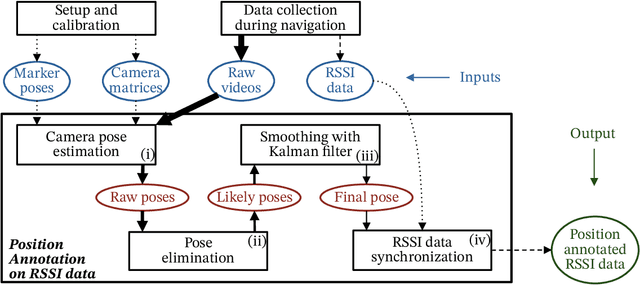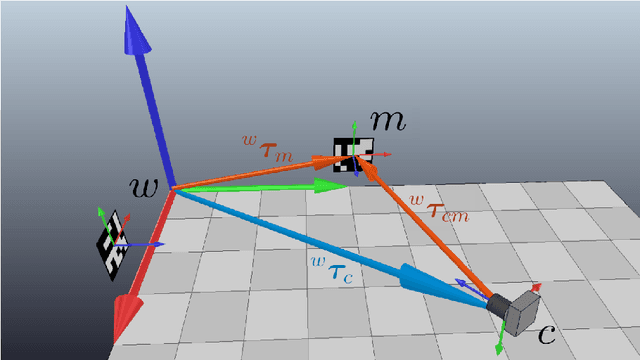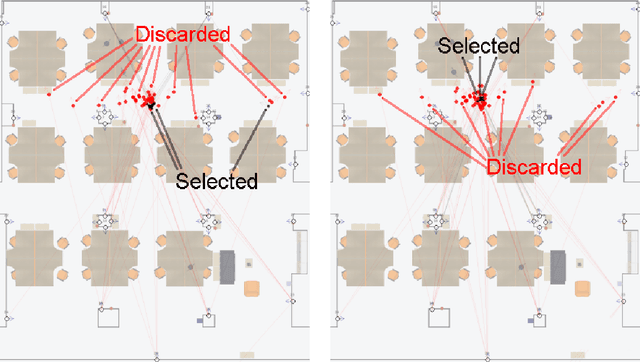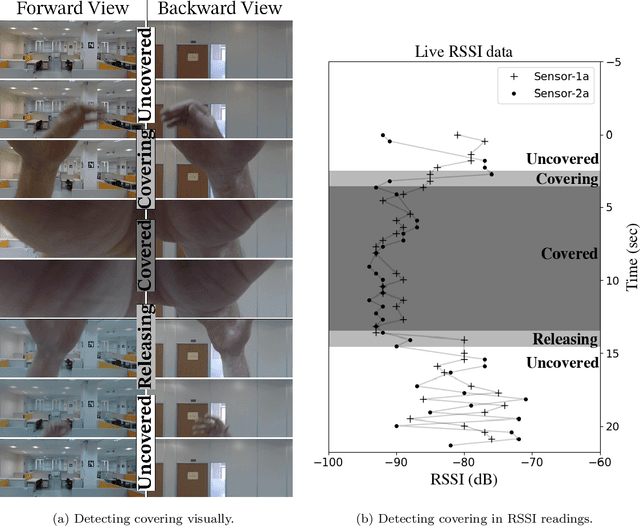F. Serhan Daniş
An Indoor Localization Dataset and Data Collection Framework with High Precision Position Annotation
Sep 06, 2022



Abstract:We introduce a novel technique and an associated high resolution dataset that aims to precisely evaluate wireless signal based indoor positioning algorithms. The technique implements an augmented reality (AR) based positioning system that is used to annotate the wireless signal parameter data samples with high precision position data. We track the position of a practical and low cost navigable setup of cameras and a Bluetooth Low Energy (BLE) beacon in an area decorated with AR markers. We maximize the performance of the AR-based localization by using a redundant number of markers. Video streams captured by the cameras are subjected to a series of marker recognition, subset selection and filtering operations to yield highly precise pose estimations. Our results show that we can reduce the positional error of the AR localization system to a rate under 0.05 meters. The position data are then used to annotate the BLE data that are captured simultaneously by the sensors stationed in the environment, hence, constructing a wireless signal data set with the ground truth, which allows a wireless signal based localization system to be evaluated accurately.
* 30 pages
Extracting Relations Between Sectors
Aug 30, 2022



Abstract:The term "sector" in professional business life is a vague concept since companies tend to identify themselves as operating in multiple sectors simultaneously. This ambiguity poses problems in recommending jobs to job seekers or finding suitable candidates for open positions. The latter holds significant importance when available candidates in a specific sector are also scarce; hence, finding candidates from similar sectors becomes crucial. This work focuses on discovering possible sector similarities through relational analysis. We employ several algorithms from the frequent pattern mining and collaborative filtering domains, namely negFIN, Alternating Least Squares, Bilateral Variational Autoencoder, and Collaborative Filtering based on Pearson's Correlation, Kendall and Spearman's Rank Correlation coefficients. The algorithms are compared on a real-world dataset supplied by a major recruitment company, Kariyer.net, from Turkey. The insights and methods gained through this work are expected to increase the efficiency and accuracy of various methods, such as recommending jobs or finding suitable candidates for open positions.
 Add to Chrome
Add to Chrome Add to Firefox
Add to Firefox Add to Edge
Add to Edge